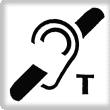
DISABILITY DISCRIMINATION
Maneuvering Through To Success


DISABILITY DISCRIMINATION
Maneuvering Through To Success

A friend of mine who works almost exclusively with disabled job-seekers told me about how often these job candidates eliminate themselves from being considered for a job.
Here are some thoughts on how to be more successful landing a job, if you have a disability...
…and some ways to protect yourself from unfair hiring practices and discrimination while you’re searching for work.

First, determine IF you actually can do the job. Why set both yourself and an employer up for frustration or potential failure? If you cannot physically or otherwise realistically perform all of the duties that a potential job requires, look for a different position to apply for. You're better off finding another Job Opening that more closely fits your skills, abilities and limitations; (and always remember - everyone has a limitation of some kind, no matter who we are).

DON'T EVER VOLUNTARILY DISCLOSE that you have a disability,
or describe any on-the-job injury,
if it is not specifically asked or required!
When you're sure you have the skills, experience, training and education to adequately perform the duties of the job, you can still too easily eliminate yourself from being considered by telling the employer anything at all about your limitations.
Employers seem to conveniently choose "someone else", or select another applicant with "better qualifications" once they learn of your disability. And since you cannot prove that they actually discriminated against you, you’re out of luck!
THE BEST PRACTICE is to entirely avoid the disability issue (if possible) during the hiring process...
...And WAIT until AFTER they have
offered you the job!

Once you have accepted the position, if the employer learns of your disability and chooses to retract their offer to hire you, they are risking a clear violation of Anti-Discrimination Laws. After all, they are obligated to keep their verbal employment agreement with you - since you've already been hired!
After you've accepted the position you next need to decide IF, WHEN and HOW MUCH to disclose regarding your disability. Consider this very carefully, because once you've let your disability be known to your employer, you cannot go back... the Cat's out of the bag!
“We may need to make a few changes to my workstation, to accommodate my needs”, (or ... "to enhance my productivity").
“The way my desk (or work station) area is set up won't work well for me, (with my pre-existing condition, or limitations)”.
“Now that I've accepted the position, I wanted to let you know that I may be needing...”
IMPORTANT:
- Always be positive, polite and gracious. Be willing to negotiate (at least a little), and try to avoid every appearance of your being a "problem", or giving the impression that you are "demanding".
- Simply continue to politely request any necessary accommodations until they are in place.
- Be sure to express sincere appreciation to your employer for their efforts and assistance to accomodate your special needs.
Now, get to work, work hard,
and show them what all you can do!
